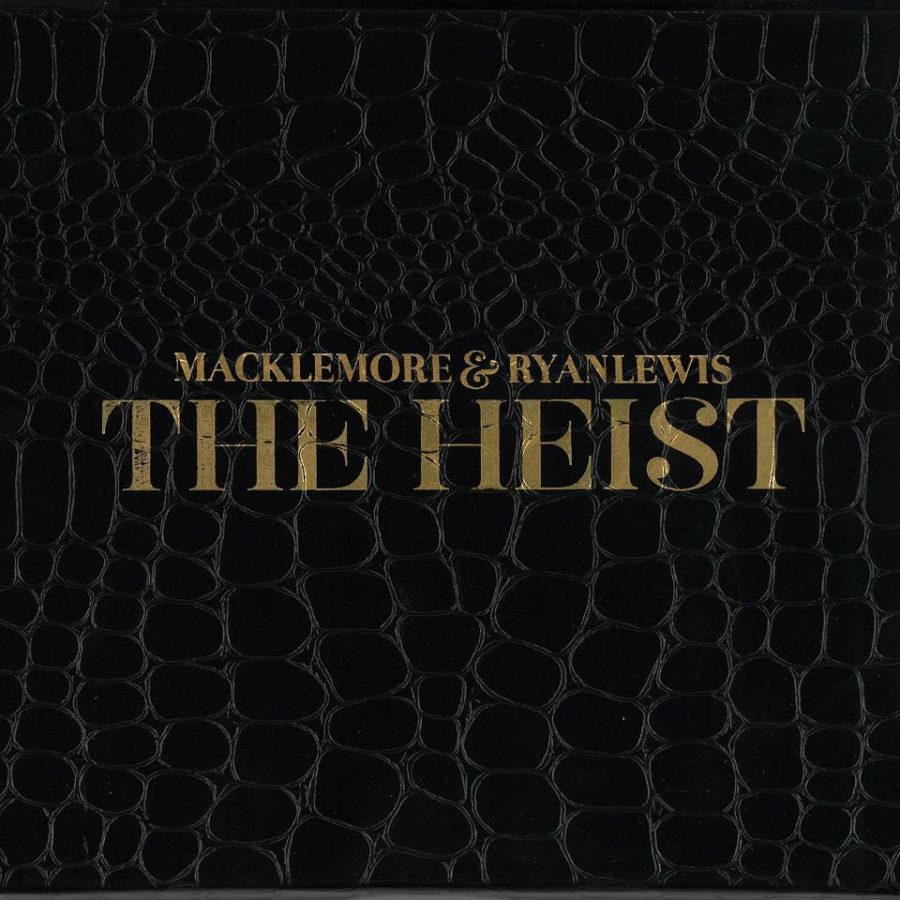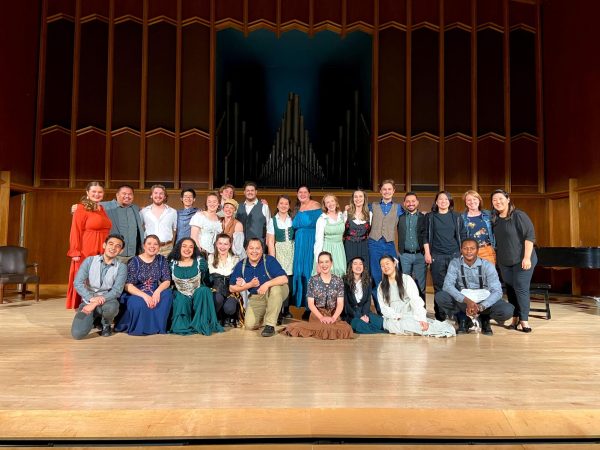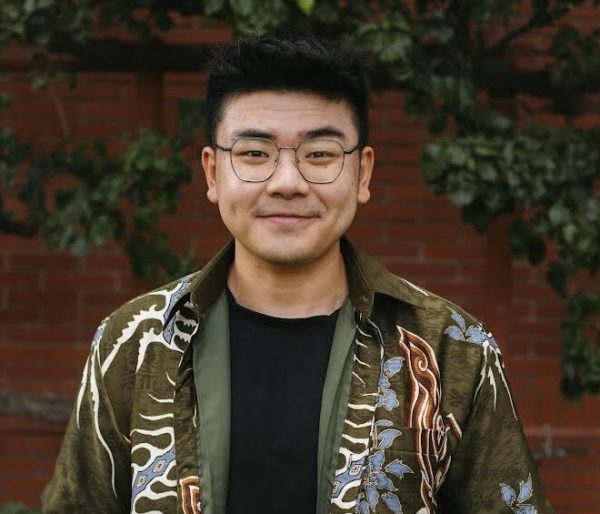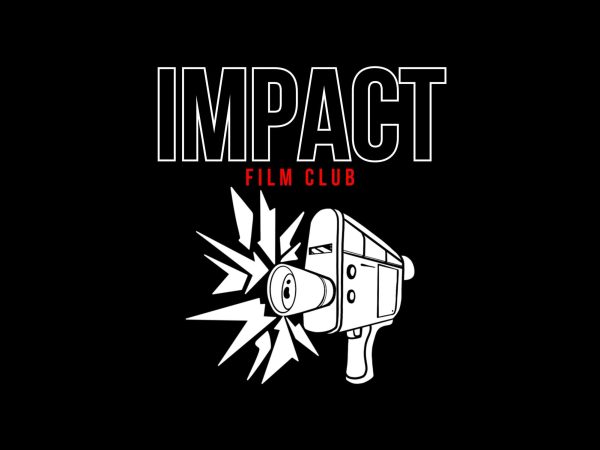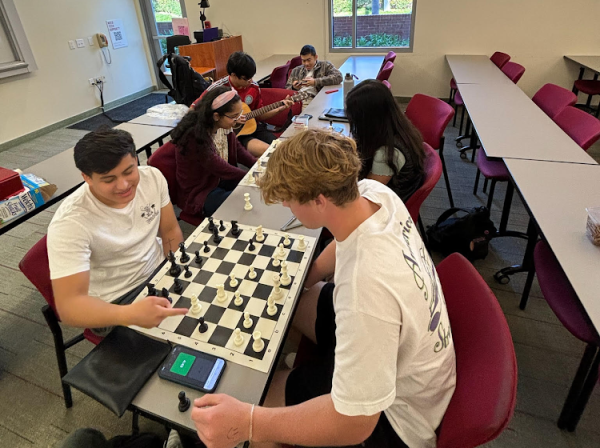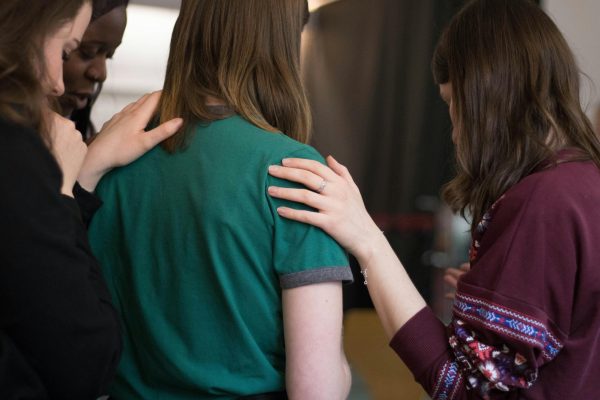Macklemore’s “The Heist” may represent the future of hip-hop
“The Heist” earns four out of five stars for an original take on hip-hop.
October 17, 2012
On the track “Ten Thousand Hours,” Seattle rapper Ben Haggerty, otherwise known by his stage name “Macklemore,” likens himself not to other established rappers or celebrities but to figures like Malcolm Gladwell and Keith Haring. Know who they are? Probably not without a quick Google search. The point is that both Haggerty and his recently released album “The Heist” offer a whole new dimension on mainstream hip-hop. It’s fresh, seasoned, genuine and blowing up. It sailed to No. 1 on iTunes within the first hour of its release and held the spot for four straight days. This independently-produced collaboration by Haggerty and DJ Ryan Lewis is already considered one of the most successful rap albums of 2012.
According to Haggerty’s lyrics, his sound is “David Bowie meets Kanye.” Longtime fans of Macklemore know about his idolization of Bowie as well as his aspiration to further the hip-hop medium like West. Still, he would do well not to shortchange the unique method he and Lewis have created. It’s clear that people are staggered by “The Heist’s” transparency and ingenuity. The Pacific Northwest hip-hop movement has advanced greatly in the last decade with Macklemore at the forefront, promoting a distinct vibe of civic culture and 1990s sentiment blended with contemporary rhythm. Considered an undergrounder for most of his career, Haggerty is now recognized on an international level.
Subject matter more expansive than other hip-hop artists
Macklemore raps about culture, family, childhood, thrift shops, Cadillacs and the battle of being yourself in a conformist world. Haggerty’s most poignant lyrical topic is his past addiction to prescription drugs and cough syrup. While he’s written several songs about partying, his glorification of that lifestyle is left wanting. More than anything Haggerty encourages sobriety, or at the least moderation. While other rappers attempt to make drug-abuse and misogyny sound artistic, Macklemore criticizes American ignorance and instead focuses on the thrills, lessons and terrors of everyday life. “The Heist” is Haggerty’s freshman debut onto the mainstream hip-hop scene, though he’s released plenty of past EPs and even a prior album titled “The Language Of My World” back in 2005.
The tracks most worth mentioning off “The Heist” are “Same Love,” “Wing$,” “A Wake” and “Starting Over.” “Same Love” is a catchy ballad calling for gay equality, which Haggerty is no stranger to; while he is not gay, he grew up on Capitol Hill in Seattle, an area that harbors a significant homosexual community. On top of that, he has two openly gay uncles. “Same Love” is the No. 1 single off of “Heist” at this point; it’s not everyday a rapper encourages a same-sex lifestyle instead of bashing it. While I personally do not condone homosexuality, Haggerty highlights the tortured lives that many gay people live with in such a biased society, and that all men and women deserve to be treated with compassion and understanding; now, that I do agree with. “Wing$” deconstructs American consumerism and talks most about the disturbing impact that the Air Jordan shoe craze had on street youth in the early ‘90s.
“A Wake” features Haggerty’s most methodical dialogue, and a bluesy hook to boot. The lyrics touch on the many shortcomings of our entitled generation. Growing up in the mid-’80s and early-’90s, Haggerty has experienced various stages of American culture. The man knows what he’s talking about when he comments on blatant societal patterns, even through a hip-hop lens. The message of the track “Starting Over” is exactly how it sounds, a heartfelt lament painting a picture of Haggerty’s past struggles with drug addiction and the numerous relapses he experienced before saying enough was enough. He swiftly rose from his own ashes back in 2010, began his collaboration with Lewis and has been sober ever since.
"The Heist" one of the freshest albums to come out of the Seattle scene
As a native Seattleite, I’ve loved Macklemore since junior high. “The Heist” features many Pacific Northwest artists, most notably singer/songwriters Mary Lambert on “Same Love” and Allen Stone on “Neon Cathedral.” Even if this album had been backed by a major label, which both Haggerty and Lewis starkly avoided, something tells me these small-time musicians still would’ve made appearances. Haggerty has an intense devotion to Seattle, the town that helped shape and nurture him, and the city returns this affection wholeheartedly, similar to the way Brooklyn loved “The Notorious B.I.G.”
So why is Macklemore such a fresh perspective on rap culture? Why have listeners for so long praised the kind of hip-hop that slanders the weak, demeans women and glorifies violence and substance abuse? What’s clear from “The Heist’s” success is that this genre of music is not set in stone — it can be reshaped and rehabilitated. Haggerty represents a transparency and vulnerability that could literally change the dynamic of hip-hop. No doubt this album, which has exceeded all expectation of success, will inspire young artists much the way Eminem did at the start of his career — just in more progressive ways.
If our generation can embrace truth and individuality rather than flaunt it, then we can move beyond this subconscious conformity that defines our zeitgeist. Macklemore is proof of this possibility, and though he will occasionally drop an f-bomb, rap some crude dialogue and reject authority figures, he ultimately preaches a message of love and creativity and how together they amount to the heart of life.


